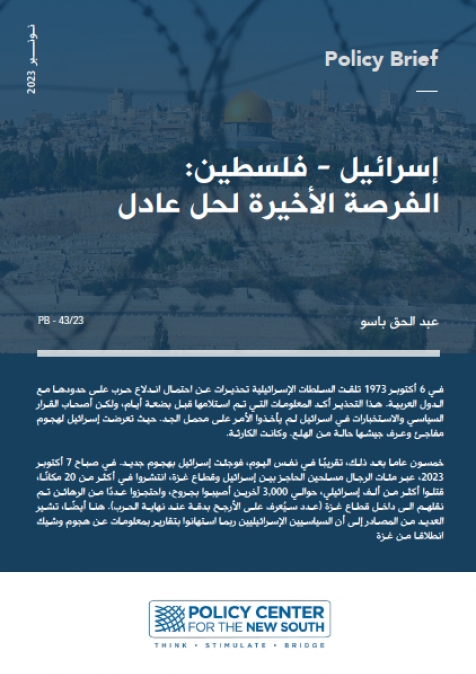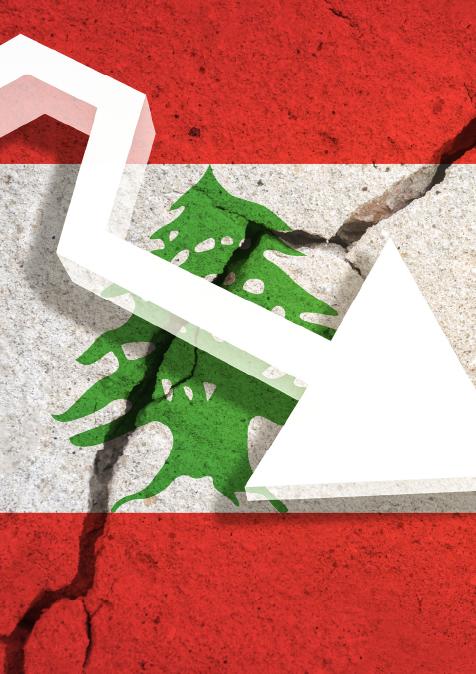Publications /
Opinion
How do you treat a brutal dictator who had lost power after 42 years, hiding in a drainpipe, after his convoy was attacked by fighter jets from the air? It was a bloody mess and not a pretty scene. The dictator had a few seconds to beg for his life, “what did I do to you», he gasped reported the London Guardian on October 22, 2011, and then his turbulent life came to an end, shot with a pistol. Triumphantly his assassin raised Gaddafi’s golden revolver -- a few minutes of global fame, later, the shadow of death touched the rebel as well.
A decade ago, on October 23, 2011, the Financial Times wrote: “Libya declared Liberation after Gaddafi’s death.” The end of the dictator was so improbable that authorities decided to keep his body for a few days in a commercial freezer, so there would not be any doubts for his followers that their hero had left life. Ultimately, the ruler was bathed buried, with one of his killed sons next to him, in a secret desert spot.
Finally, the day had come to begin the transition from tyranny and oppression towards democracy, competing tribes united, the national treasures, oil, and gas shared by the people, and the disempowered inhaling freedom. Instead of unity, two more civil wars in ten years followed; on February 16, 2015, Rebecca Murray reported in “Al Jazeera: “The situation is just terrible. Mounting chaos has gripped the country.”
Libya “has been awash with weapons since the 2011 uprising that toppled Muammar Gaddafi, and opposing militias have since been battling for control of its cities and oil wealth.”(The Guardian). Russian, Sudanese, Syrian mercenaries were also involved, fighting for their funders. There were two sides: the Libyan government in Tripoli, the Government of National Accord (GNA), recognized by the United Nations and supported by mainly Ankara. In the eastern side, based in Benghazi and Tobruk, the self-appointed Field Marshall Khalifa Haftar,77, a renegade former general (who took part in the coup which brought Gaddafi to power in 1969), heading the “Libyan Arab Armed Forces” (LAAF), which received funds and weapons from an unlikely coalition of Russia, the United Arab Emirates, Egypt, France, Saudi Arabia, and Jordan.
Rewinding the clock, on February 15, 2011, an uprising was staged in the seaport city Benghazi, the second largest of Libya, and a “National Transitional Council” founded. Troops loyal to Gaddafi tried to defeat the resistance. Still, local militias fought back, and French fighter jets (authorized by a UN resolution to protect the civilian population) and rebels forced the Gaddafi soldiers to retreat, and the civil war continued.
In 2011, Haftar returned from a two-decade exile in the US to join the Libyan revolution. He was ultimately chosen as commander of the then-Libyan National Army (LNA) by the House of Representatives in March 2015 in a process fraught with pitfalls. Al Jazeera: “Haftar has become one of the most divisive figures in post-revolutionary Libya. » And, again Rebecca Murray : «Now Libya is bitterly split. It has two opposing governments, parliaments and fighting forces intent on seizing the country’s power and assets”. In April 2019 Haftar released a recording on Facebook declaring war against the UN-backed government.
As a result, a war raged on Tripoli’s outskirts for months, battles in which the Russian Wagner Group intervened with about 3000 mercenaries in Libya, as estimated by the US Department of Defense, trying to lead Haftar to victory. In total, 22 OOO foreign fighters have been estimated to be fighting over the years. Turkey, besides sending Syrian mercenaries, intervened in active combat in January 2020 with armed drones while air defense systems were deployed.
Imposing peace by force
A cease fire was reached in September 2020 - the LAAF forces and the Wagner group had retreated to Sirte, a strategic city at the opening of the oil crescent in Libya’s center. On March 21 of this year a government of National Unity (GNU) was formed, the agreed sole legitimate authority in the country. December 24, 2021, was chosen to be a historic day—free elections in Libya. Finally, A new parliament, a new President. On November 16, 2021, Haftar declared, that he would be a candidate for the Presidency. « The Elections in Libya: A Troubled Democratic Transition” stated Noamane Cherkaoui in his Policy Brief for the “Policy Center for the New South” (October 2021, PB-36/21).
The author states in his detailed and well-documented analysis, ”the political process is at a standstill… There is no consensus-based electoral law setting out how elections in December will be held, which also papers over disparate concerns of election integrity and post-election state-formation plans.” Cherkaoui, postgraduate in International Relations at the University of Leicester suggests in his brief, that “the democratic transition in Libya may be in peril because of an escalating, multidimensional crisis in the country. The crisis’ internationalized nature has undermined domestic stability, with many countries vying for influence and the spoils of war”. Cherkaoui notes in detail why some of the foreign nations are reluctant to depart from Libya. For example, for Italy, Libyan hydrocarbons fulfil 10% of its energy needs, importing more than 20 % of its crude oil from Libya pre- 2011- with its interests mostly in the west of Libya.
ENI, the Italian energy company announced that it would develop its offshore presence in Libya towards increased gas production. “Russia has been a key player in Libya”, writes the Policy Center expert, “propping up the LAAF militarily and economically. It hopes to gain preferential access to oil reserves as well as another naval base to encircle NATO and to further solve its strategic impediment of a lack of numerous warm-water bases.” France has backed Haftar and the LAAF, which seems hardly a surprise: Total is securing its oil investments since the 1950’s with “France importing more than 15% percent of its crude oil needs from Libya-pre-2011.” Turkey strongly backed the internationally-recognized GNA, signing bilateral deals on maritime boundaries and military cooperation. « This, noted Cherkaoui, has led to close coordination with the Government of National Unity” (GNU), particularly on security issues, and Turkey has an ongoing presence in bases in Tripoli and Misrata.
A man named Gaddafi wanted for war crimes by the “International Criminal Court” (ICC), sentenced to death by firing squad by a court in Tripoli 2014 for crimes against humanity, committed during the revolt, which his father did not survive - Seif al- Islam el Gaddafi, 49, received contributing writer Robert Worth of the New York Times Magazine in a guarded compound near Zintan, Southwest of the capital Tripoli, suggesting he may run for President: «Qaddafi’s son is alive. And he wants to take Libya back;” (New York Times, July 30, 2021). Those unfortunate legal issues, Gaddafi Junior is confident, “could be negotiated away” if a majority of the Libyan people choose him as their leader. For years the second son of the dictator had not been seen; captured in a remote desert town named Awbari by a militia, then kept hidden, presumably one day to exchange the prisoner for cash, or political favors. “I have been away from the Libyan people for 10 years. It would help if you came back slowly, slowly like a striptease. It would help if you played with their minds a little.” The politicians following his father’s rule have brought “nothing but misery. It is time for a return to the past.” A possible, yet unlikely return of a Gaddafi to power, wrote Robert Worth, « would certainly be a symbolic triumph for Arab autocrats who shares his loathing for the Arab spring.” The dream was seemingly short, too short for the nostalgic followers of Gaddafi senior- his comeback kid Saif al-Islam was one of 25 candidates of the official 98, rejected and declared ineligible by the Libyan election commission. He decided to appeal, but when his lawyer tried to enter the court building in the southern city of Sebha, gunmen stopped him from filing his papers, an act immediately criticized by the UN representative as a violent attempt to interfere in the election process. However, he was finally permitted to run by the Sebha court on 2 December.
Now the dreamer possibly has more time to finally put into place his retrogressive vision for Libya. He has a brother, Saadi, who escaped to Niger while the people of Libya revolted against the Gaddafi regime. Since he was deported in 2014, the former football professional, whose wealth allowed him to be part of the Italian professional team of Perugia, was imprisoned in Tripoli. The “National Reconciliation Program”, launched by the present and interim government, agreed to declare an amnesty for political prisoners, including Saadi Gaddafi and Ahmed Ramadan, the son of the dictator and his personal secretary, who was released the first week of September. However, there was no similar dream for this Gaddafi-son to revive the past. No vengeance. Barely released from jail, he took a private plane to Istanbul.
The opinions expressed in this article belong to the author.








